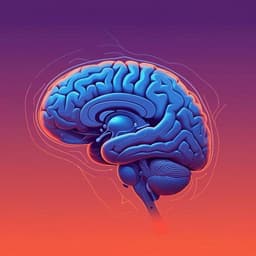
Psychology
Personalized functional brain network topography is associated with individual differences in youth cognition
A. S. Keller, A. R. Pines, et al.
Discover how individual differences in cognition during childhood correlate with functional brain network topography in this groundbreaking study by Arielle S. Keller and colleagues. By analyzing data from the Adolescent Brain Cognitive Development Study, the research reveals that personalized functional networks are linked to cognitive abilities in children aged 9-10. This work provides crucial insights into how brain development influences future health and social outcomes.
Related Publications
Explore these studies to deepen your understanding of the subject.







